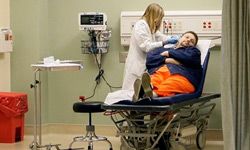How often do you think American adults see their doctors? Probably more often than you think, actually -- nearly 83 percent of the general adult population in the U.S. saw a health care professional in the last year, usually for an annual physical [source: CDC]. Now take a guess at the number of inmates with access to a health care professional -- did you guess higher or lower? The Bureau of Justice Statistics reports that in 2004, almost 70 percent of prisoners in state correctional institutions (and almost 76 percent of inmates in federal prisons) saw a health care professional for a current medical complaint [source: Bureau of Justice Statistics].
Who are the physicians who care for inmates, and what kind of medical care do they provide? Let's start with how a physician decides to practice in the correctional health services field.
Advertisement
